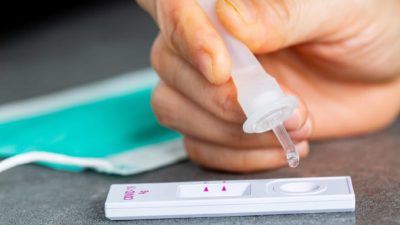Bapcor Ltd (ASX: BAP) has become the latest retailer to trigger a capital raising as a result of the coronavirus pandemic. Securities in the car parts retailer remain in a trading halt after Bapcor released an announcement earlier today outlining details of the capital raising.
Why is Bapcor raising capital?
Bapcor announced earlier today that the company will launch a capital raising, looking to raise up to $210 million from institutional and existing retail shareholders. The deal will consist of a fully underwritten share placement worth $180 million for institutional investors. The placement will be conducted at $4.40 a share which is an 8.5% discount to the company's last closing price of $4.81. In addition, Bapcor will also offer retail investors $30 million of new shares as part of a share purchase plan.
The car parts company has joined other retailers in raising capital in order to strengthen its balance sheet. Although Bapcor doesn't have a debt problem at the moment, a strong balance sheet will help the company survive a prolonged downturn amid the coronavirus pandemic.
How will the capital raise strengthen Bapcor?
Bapcor informed investors that the proceeds of the capital raising will be used to reduce the company's net debt position and gearing. According to the company, increased levels of cash on hand will provide Bapcor with liquidity and flexibility in the current market environment.
After completion, Bapcor will have pro forma net debt of $226 million as at 31 December 2019. The company's net debt as at 31 March 2020 will be reduced from $429 million to $252 million on a pro forma basis, including $231 million in cash.
How has Bapcor performed in 2020?
Bapcor owns 950 retail and trade outlets, including its flagship Autobarn retail chain, providing car parts and accessories to motor mechanics, garages and car enthusiasts. This morning, Bapcor provided a trading update, informing investors that the company performed strongly across January and February of 2020, with revenue at the end of February up 12.7% in comparison to the prior corresponding period (pcp).
Despite the trading restrictions, Bapcor's Australian operations performed solidly, increasing 15.6% in March 2020 over the pcp. Conversely, the company's New Zealand revenue declined 16.1% in March as a result of store closures and the impact of more extensive lockdown measures on customer demand. Bapcor management also reassured shareholders that gross margins remained stable across all business segments.
The COVID-19 pandemic forced Bapcor to withdraw its profit guidance on 25 March. The company cited the uncertainty of the economic fallout from the coronavirus pandemic and the increasing restrictions being imposed by the government on commerce.
Foolish takeaway
The coronavirus pandemic has wreaked havoc on the car and transport sectors, with social isolation measures keeping millions of cars off the road. As a result, auxiliary retail services like those provided by Bapcor have also suffered.
In response, the Bapcor share price has plunged more than 33% since its 2020 high in mid-February. Bapcor shares are expected to remain in a trading halt until 17 April 2020.








